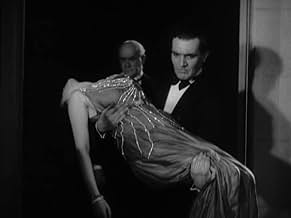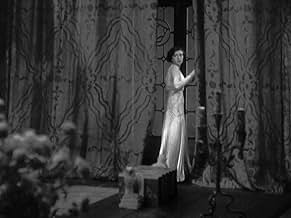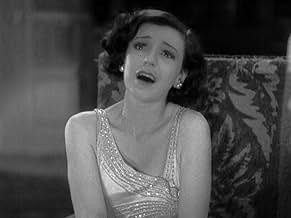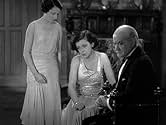IMDb RATING
5.7/10
3.8K
YOUR RATING
An old traditional family and a modern family battle over land in a small English village and almost destroy each other.An old traditional family and a modern family battle over land in a small English village and almost destroy each other.An old traditional family and a modern family battle over land in a small English village and almost destroy each other.
- Director
- Writers
- Stars
Rodney Ackland
- Man at Auction
- (uncredited)
Ivor Barnard
- Man at Auction
- (uncredited)
Wally Patch
- Van Driver
- (uncredited)
- Director
- Writers
- All cast & crew
- Production, box office & more at IMDbPro
Featured reviews
Early Hitchcock drama that proves with every film, he was experimenting. Here, he uses zip pans moving from person to person during a frantic auction scene. This technique wouldn't become commonplace for another thirty years with the introduction of cinema verite. Other than that, this is a rather ordinary drama.
....this is good early Hitch! good screenplay,good directing and good acting!Phyllis Konstam is the stand-out .Her portrayal of Chloé can still grab today's audience .
Good scenes:
-the auction sale,twenty-eight years before "North by Norwest" ,is one of the most suspenseful moments of the Master's English era.And there's a brilliant unexpected twist when we think it's over!
-when Chloe takes refuge in her father-in-law's enemy's house,the things seem to have a life of their own:the door,the window,the curtains..
And in 1931,Hitchcock avoids over-simplification:who is good,in the end?who is evil?The local squire and his lady or the arrogant nouveau riche?Who did you have to save?the old couple or the ill-fated Chloé?
In the Truffaut/Hitchcock book,the master says "I did not choose that subject and there is nothing to say about it."
Good scenes:
-the auction sale,twenty-eight years before "North by Norwest" ,is one of the most suspenseful moments of the Master's English era.And there's a brilliant unexpected twist when we think it's over!
-when Chloe takes refuge in her father-in-law's enemy's house,the things seem to have a life of their own:the door,the window,the curtains..
And in 1931,Hitchcock avoids over-simplification:who is good,in the end?who is evil?The local squire and his lady or the arrogant nouveau riche?Who did you have to save?the old couple or the ill-fated Chloé?
In the Truffaut/Hitchcock book,the master says "I did not choose that subject and there is nothing to say about it."
The early 30s were a time of experimentation for Hitchcock, with theme as much as with technique. After discovering that the crime thriller was his forte with Blackmail and Murder!, his at the time zigzagging career lead him to attempt a talkie drama adapted from a fairly mediocre stage play concerning a feud between the families of an aristocrat and an entrepreneur.
In attempting a straight ahead drama without any major thriller elements, Hitchcock nevertheless employs all the techniques he had been perfecting in his earlier crime pictures dynamic editing, a focus on the psychology of guilt and fear, as well as some of the sound techniques of his previous talkies. Sometimes it works, other times it doesn't. He tries to inject some tension into an auction scene with whip pans and quick editing, which is a fairly good display of technique but we don't really care enough about the outcome of the bidding to get really drawn in at this point.
For some of the more talky scenes, Hitchcock tries to move beyond the story's theatrical roots by focusing on reactions and having dialogue take place off screen. This helps to give weight to the second half of the film. In particular, Hitch's dwelling on the face of Chloe, the innocent victim of the feud, makes the audience feel sympathy for her character, which in turn makes the climactic scenes work and prevents them from slipping into ridiculous melodrama (which the stage version may well have done). For some of the more subdued scenes, Hitchcock preserves an unbroken take but still takes the focus on and off different characters by smoothly dollying in and out. This same method would be used by Laurence Olivier when he began directing Shakespeare adaptations in the 1940s. However, too many of the dialogue scenes in The Skin Game are simply a lot of panning as the camera tries to keep up with extravagant theatrical performances.
This is a fairly good go at theatrical drama for Hitchcock, but it was made at a time when he was coming to realise not only his strength in the suspense thriller, but his weakness in (and utter distaste for) every other genre. He was probably beginning to look at this kind of project as a rather dull waste of time, and definitely at odds to his sensibility. As an example, this is one of the very few Hitchcock pictures to take advantage of natural beauty, and yet he makes this aspect a victim of his playful irony, by taking his most beautiful countryside shot, then pulling out to reveal it is merely a tiny picture on a sale poster, surrounded by Hornblower and his cronies laughing over the deal they have just made.
The Skin Game is rarely gripping, but at times it is powerful, and in any case it has a short enough running time to prevent it from getting boring. Hitchcock however was looking now to have more fun with crime and suspense, and this sense of the dramatic (not to mention a sense of genuine sympathy for the victim) would not return until his later Hollywood pictures, and even then only occasionally.
In attempting a straight ahead drama without any major thriller elements, Hitchcock nevertheless employs all the techniques he had been perfecting in his earlier crime pictures dynamic editing, a focus on the psychology of guilt and fear, as well as some of the sound techniques of his previous talkies. Sometimes it works, other times it doesn't. He tries to inject some tension into an auction scene with whip pans and quick editing, which is a fairly good display of technique but we don't really care enough about the outcome of the bidding to get really drawn in at this point.
For some of the more talky scenes, Hitchcock tries to move beyond the story's theatrical roots by focusing on reactions and having dialogue take place off screen. This helps to give weight to the second half of the film. In particular, Hitch's dwelling on the face of Chloe, the innocent victim of the feud, makes the audience feel sympathy for her character, which in turn makes the climactic scenes work and prevents them from slipping into ridiculous melodrama (which the stage version may well have done). For some of the more subdued scenes, Hitchcock preserves an unbroken take but still takes the focus on and off different characters by smoothly dollying in and out. This same method would be used by Laurence Olivier when he began directing Shakespeare adaptations in the 1940s. However, too many of the dialogue scenes in The Skin Game are simply a lot of panning as the camera tries to keep up with extravagant theatrical performances.
This is a fairly good go at theatrical drama for Hitchcock, but it was made at a time when he was coming to realise not only his strength in the suspense thriller, but his weakness in (and utter distaste for) every other genre. He was probably beginning to look at this kind of project as a rather dull waste of time, and definitely at odds to his sensibility. As an example, this is one of the very few Hitchcock pictures to take advantage of natural beauty, and yet he makes this aspect a victim of his playful irony, by taking his most beautiful countryside shot, then pulling out to reveal it is merely a tiny picture on a sale poster, surrounded by Hornblower and his cronies laughing over the deal they have just made.
The Skin Game is rarely gripping, but at times it is powerful, and in any case it has a short enough running time to prevent it from getting boring. Hitchcock however was looking now to have more fun with crime and suspense, and this sense of the dramatic (not to mention a sense of genuine sympathy for the victim) would not return until his later Hollywood pictures, and even then only occasionally.
I feel many writers and critics, David Sterritt, Donald Spoto to name but two are too dismissive of this movie. With the technological restrictions of the very early talkie, Hitchcock as used his artistry to compose fluidity and cinematic suture to a rather stolid Galsworthy play. Already mentioned are the innovative zip pans, he also has intelligent use of dissolve, symbolism aplenty within montage sequences, sheep v horn (Hillcrest v Hornblower). The juxtaposition in the opening sequence of the car and the horse sets the theme beautifully. Occasionally there is daring reverse shots of the same objects defying the 180 degree rule, especially noticeable as we break into the proscenium arch of theatre.
I recently saw Hitchcock's "Rich and Strange" and really enjoyed it, so I was game for another go at this early 1930's British cinema, in my attempt to become a "Hitchcock completist." Please keep in mind that I'm an American with a pretty-good ear for British dialog, but there are some speeches contained here that I couldn't understand in the least. But only a fairly small portion that is. The early sound equipment doesn't help either.
The title "The Skin Game" refers to a heated altercation that leaves no holds barred, and no prisoners taken. The plot line is essentially a "Hatfields and McCoys" family feud over land rights, with a lot of dirt being dug up on both families involved. Like pretty much all early sound films, there is a heavy reliance on dialog and the spoken phrase, which makes "The Skin Game" obviously derived from the stage.
At the beginning there's a long take with probably ten pages of dialog in it, using a medium shot of three characters, with the camera panning between them. At least once, someone was speaking dialog while not on camera, which I always find distracting -- a minor flaw I admit, but noticeable. Hitchcock's pacing feels relatively quick considering, and he keeps interest in these scenes with dramatic exits and entrances of characters, and revelations of plot details.
Really some of these takes were so long that actors coughed, dropped things and retrieved them, and other apparent flubs that were never re-shot. Seems like once the director was five minutes into a scene he couldn't afford the film stock to begin again, so there are a lot of miscues and such, which kind of adds to the immediacy. Especially considering that I'm certain that even the young Hitchcock was keenly aware of every missed cue and dropped line, and it had to drive him to distraction! I was certainly impressed by this early Hitchcock effort and I'm sure that audiences back then went away from this one with the feeling that they got their money's worth. It was apparent that an extremely talented film maker was at work here, trying to keep the audience involved every step of the way. And he did succeed actually.
For instance, there is a scene at an auction house that lasts for about ten minutes, and Hitchcock sets it up in such a way to keep the audience anxiously awaiting the outcome. He has the camera making very fast pans from one bidder to the next, slowing down only when the bidding does. The audience has some background information about the proceedings, but not enough to spoil the surprise at the end.
It's early sound cinema -- so most viewers today can't bear this kind of thing, but if you're familiar with and enjoy films of the early 20Th Century, it's extremely enjoyable and does have a payoff at the end! *** out of *****
The title "The Skin Game" refers to a heated altercation that leaves no holds barred, and no prisoners taken. The plot line is essentially a "Hatfields and McCoys" family feud over land rights, with a lot of dirt being dug up on both families involved. Like pretty much all early sound films, there is a heavy reliance on dialog and the spoken phrase, which makes "The Skin Game" obviously derived from the stage.
At the beginning there's a long take with probably ten pages of dialog in it, using a medium shot of three characters, with the camera panning between them. At least once, someone was speaking dialog while not on camera, which I always find distracting -- a minor flaw I admit, but noticeable. Hitchcock's pacing feels relatively quick considering, and he keeps interest in these scenes with dramatic exits and entrances of characters, and revelations of plot details.
Really some of these takes were so long that actors coughed, dropped things and retrieved them, and other apparent flubs that were never re-shot. Seems like once the director was five minutes into a scene he couldn't afford the film stock to begin again, so there are a lot of miscues and such, which kind of adds to the immediacy. Especially considering that I'm certain that even the young Hitchcock was keenly aware of every missed cue and dropped line, and it had to drive him to distraction! I was certainly impressed by this early Hitchcock effort and I'm sure that audiences back then went away from this one with the feeling that they got their money's worth. It was apparent that an extremely talented film maker was at work here, trying to keep the audience involved every step of the way. And he did succeed actually.
For instance, there is a scene at an auction house that lasts for about ten minutes, and Hitchcock sets it up in such a way to keep the audience anxiously awaiting the outcome. He has the camera making very fast pans from one bidder to the next, slowing down only when the bidding does. The audience has some background information about the proceedings, but not enough to spoil the surprise at the end.
It's early sound cinema -- so most viewers today can't bear this kind of thing, but if you're familiar with and enjoy films of the early 20Th Century, it's extremely enjoyable and does have a payoff at the end! *** out of *****
Did you know
- TriviaThe title comes from a slang phrase for "an unscrupulous business operation". Although this movie is British, the term is considered American and dates back to just after the American Civil War (1861-1865). It is not to be confused with the similar-sounding aphorism "to have skin in the game", which refers to someone who has a stake, financial or emotional, in a business deal, wager, or other situation.
- Quotes
[last lines]
Mr. Hillcrist: What is it that gets loose when you start a fight, and makes you what you think you're not? Begin as you may, it ends in this skin game! Skin game! When we began this fight, we'd clean hands. Are they clean now? What's gentility worth if it can't stand fire?
- ConnectionsFeatured in Paul Merton Looks at Alfred Hitchcock (2009)
- SoundtracksHabanera
(1875) (uncredited)
from "Carmen"
Music by Georges Bizet
Libretto by Henri Meilhac and Ludovic Halévy
Excerpt whistled by Jill Esmond
Details
- Release date
- Country of origin
- Language
- Also known as
- Juego sucio
- Filming locations
- Elstree Studios, Borehamwood, Hertfordshire, England, UK(Studio, destroyed during World War II and later rebuilt)
- Production company
- See more company credits at IMDbPro
- Runtime1 hour 25 minutes
- Color
Contribute to this page
Suggest an edit or add missing content

































